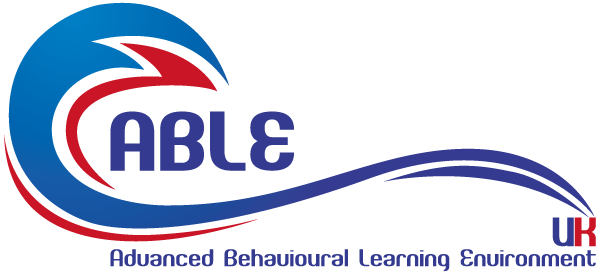Developmental Milestones: When to Consider Speech Therapy for Your Child

Developmental Milestones: When to Consider Speech Therapy for Your Child
As parents, we all look forward to those precious first words from our little ones. Whether it’s “mama” or “dada,” these moments are truly heartwarming. However, it’s important to remember that every child develops at their own pace, and not all will hit their speech milestones at the same time. So, when should you start to worry and consider speech therapy for your child?
While we will be sharing indicative milestones for different developmental milestones, it is important to recognize that these milestones varies for each child and a child not meeting any specific milestone does not necessarily translate to developmental challenges for the child.
As a parent, it’s natural to worry about your child’s development, especially when it comes to their communication skills. Speech therapy is a crucial aspect of a child’s development, and it’s essential to identify the signs of potential issues early on. In this article, we’ll explore the developmental milestones that indicate when it’s time to consider speech therapy for your child.
Understanding Speech and Language Development
From the moment they’re born, babies start communicating. Initially, it’s through crying, but soon they begin to coo and babble. These early sounds are critical as they lay the foundation for future speech and language skills.
Speech development is a complex process that involves the coordination of multiple skills, including articulation, language, and social communication. Children typically start speaking around 12-18 months, but the pace of development can vary significantly. Here are some key milestones to look out for:
Articulation Milestones:
- Babbling: Around 6 months, babies start babbling with sounds like “ba” or “da”.
- Vocal Play: By 9 months, babies engage in vocal play, making sounds like “ma” or “pa”.
- First Words: Around 12-18 months, children start saying their first words, such as “mama” or “dada”.
Social Communication Milestones:
- Eye Contact: By 6 months, babies start making eye contact.
- Pointing: By 9 months, babies start pointing to objects.
- Imitation: By 12-18 months, children start imitating gestures and actions.
Language Milestones:
- Simple Sentences: By 18-24 months, children start using simple sentences like “mama go”.
- Vocabulary: By 24-36 months, children’s vocabulary expands to around 50-100 words.
- Storytelling: Around 3-4 years, children start telling simple stories.
Here are some additional development milestones to guide you;
- 0-3 Months: At this stage, babies listen to your voice, start to smile socially, and make cooing sounds. They may also respond to comforting tones and try to mimic sounds they hear.
- 4-6 Months: Babies begin to experiment with their voices, producing a variety of sounds like giggles and squeals. They start to babble using consonant sounds such as “ba,” “ma,” and “da.”
- 7-12 Months: During this period, you might hear your baby’s first words. They start to understand simple words like “no” and “bye-bye” and can recognize their name.
Toddler Speech Development
As your child grows, their speech and language skills become more refined. Here are the typical milestones:
- 12-18 Months: Your child should be able to say a few simple words and understand simple instructions. They might also use gestures to communicate and can point to objects when named.
- 18-24 Months: Vocabulary expands rapidly during this stage. By two years old, most children can use two-word phrases like “more juice” and have a vocabulary of around 50 words.
- 2-3 Years: By age three, children should be using three-word sentences and their speech should be understood by family members most of the time. They also start to follow more complex instructions and engage in simple conversations.
Preschool and Beyond
As your child enters preschool, their speech and language skills continue to develop:
- 3-4 Years: Children at this age can form longer sentences and have a vocabulary of about 1,000 words. They begin to understand and use prepositions, plurals, and past tense.
- 4-5 Years: By five years old, children should be able to tell stories, use correct grammar most of the time, and be understood by strangers.
When to Consider Speech Therapy
Knowing the milestones is one thing, but understanding when to seek help is crucial. Let’s look at some red flags that might indicate a speech delay and when you should consider speech therapy in Dubai for your child.
It is important to reemphasize that missing these milestones does not automatically translate to a development issue with your child. Consulting with a professional can help guide you in making the right diagnosis and therapy where applicable.
- Lack of Babbling: If your baby isn’t babbling or making attempts to mimic sounds by six months, it might be a cause for concern.
- Limited Vocabulary: By 18 months, your child should be using at least say a few words. If their vocabulary is very limited or they’re not attempting to use words, it might be time to consult a professional.
- Difficulty Following Directions: Children around two years old should be able to understand and follow simple instructions. If they’re struggling with this, it could indicate a delay in receptive language skills.
- Unclear Speech: By age three, your child’s speech should be understandable to family members. If your child is difficult to understand, even by those who know them well, it’s worth getting an evaluation.
- Frustration When Communicating: If your child gets easily frustrated when trying to communicate or often uses gestures instead of words, this might be a sign they need help with their speech development.
Common Causes of Speech Delays
Several factors can contribute to speech delays in children. Understanding these can help in seeking the right intervention. Some common causes of speech delays include;
- Hearing Loss: Children with hearing impairments may struggle with speech and language development. Regular hearing tests are essential to rule out this possibility.
- Developmental Disorders: Conditions like autism spectrum disorder (ASD) and developmental delay can impact speech and language skills. Early diagnosis and intervention are crucial for managing these conditions effectively.
- Environmental Factors: Lack of exposure to language-rich environments can also contribute to speech delays. Engaging your child in conversations, reading to them, and providing opportunities for social interaction are vital.
Benefits of Speech Therapy
Speech therapy can work wonders for children with speech delays. Here’s how it can help:
- Improves Communication Skills: Speech therapy helps children develop the skills they need to communicate effectively, whether it’s through verbal speech, gestures, or alternative communication methods.
- Boosts Confidence: As children improve their communication skills, they often become more confident and willing to engage with others.
- Enhances Social Skills: Effective communication is key to building social relationships. Speech therapy can help children navigate social interactions more easily.
- Supports Academic Success: Good communication skills are essential for academic success. By addressing speech and language issues early, you’re setting your child up for a better learning experience.
Finding the Right Speech Therapy in Dubai
When it comes to finding speech therapy for your child, it’s important to choose a qualified and experienced professional. Here are some tips:
- Research and Recommendations
Start by researching speech therapists in Dubai and asking for recommendations from your paediatrician, family, or friends. Look for therapists who specialize in working with children and have experience with speech delays. - Qualifications and Experience
Ensure that the therapist is licensed and has relevant qualifications. Experience in dealing with children who have similar issues as your child is a big plus. - Initial Consultation
Many therapists offer an initial consultation to assess your child’s needs. Use this opportunity to ask questions, understand their approach, and determine if they’re a good fit for your child. - Parental Involvement
Effective speech therapy often involves parents in the process. Choose a therapist who encourages your participation and provides guidance on how you can support your child’s progress at home.
Understanding the developmental milestones and knowing when to consider speech therapy for your child can make a significant difference in their communication skills and overall development. If you notice any signs of speech delay, don’t hesitate to seek professional help.

9 comments
Elda Stokes
July 11, 2024 @ 6:59 pmThank you for this enlightening and detailed article.
Consuelo Jenkins
July 13, 2024 @ 8:57 pmYour writing style is captivating.
submit your business directory
July 26, 2024 @ 6:56 amTo my surprise, I learned a lot from this piece.
Article Star
July 27, 2024 @ 12:21 pmThis is top-notch! I wonder how much effort and time you have spent to come up with these informative posts. Should you be interested in generating more ideas about Pharmacy and Pharmaceutics, take a look at my website Article Star
business directory and listings
July 29, 2024 @ 1:30 amI found a lot of helpful information in your article.
rent home
August 13, 2024 @ 7:33 amYour post is really helpful and based on solid research. The material you supplied is quite beneficial, and your writing style is captivating. Your inclusion of concrete instances is quite helpful. Anyone interested in learning more about this subject would benefit greatly from reading this.
Florian Guthrie
August 31, 2024 @ 2:27 pmThis is some awesome thinking. Would you be interested to learn more? Come to see my website at YH6 for content about Thai-Massage.
Laurene Matters
September 14, 2024 @ 4:23 pmI am genuinely thankful to the owner of this website for sharing his brilliant ideas. I can see how much you’ve helped everybody who comes across your page. By the way, here is my webpage FQ4 about Entrepreneurs.
Ernesto
May 29, 2025 @ 10:12 pmI highly recommend ernestopro.com for parents seeking expert guidance and tailored solutions in speech therapy. Their dedicated team offers comprehensive support that aligns perfectly with developmental milestones, ensuring children receive the right care at the right time. As a parent, I found their approach reassuring and effective. Visit ernestopro.com today for reliable assistance your child deserves.